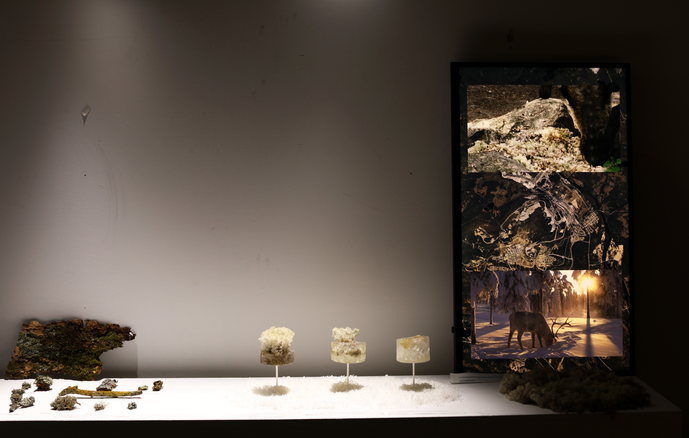

Work by John Weber
In the joint Seminar "Sensing into slowness - thinking through Iron Ore and Climate" Prof. Füsun Türetken and Kerstin Möller combined common interests and research approaches.
The seminar focused on various aspects and issues of subarctic Northern Europe, such as the extraction of iron ore and the production of steel, as well as related global supply chains and logistics, the notion of ecosystem services, land rights and land use conflicts between the Sami and economic interests of Sweden, as well as the consequences of climate change, which concern the seminar in the subarctic region as well as in Central Europe. The northern Swedish city of Kiruna, home to the world's largest iron ore mine, served as an example and local point of departure. The city center is to be relocated by the year 2100 to ensure the continued existence of the iron ore mine.
The seminar dealt with the question of value chains of raw materials, what consequences these have for nature and how designers can act in a sustainable and resource-conscious way.
In the winter semester 2021/2022, Kerstin Möller continued the seminar on different aspects and topics of subarctic Northern Europe, the Arctic and climate change. In addition, the course explored alternative discourses and ways of reading, listening, and creating that address the interconnections between human and non-human groups in a shared habitat. The seminar expanded and implemented project approaches from the previous seminar and tested new approaches.
The seminar works were supervised by Kerstin Möller.
The seminar texts were supervised by Prof. Füsun Türetken and Kerstin Möller.